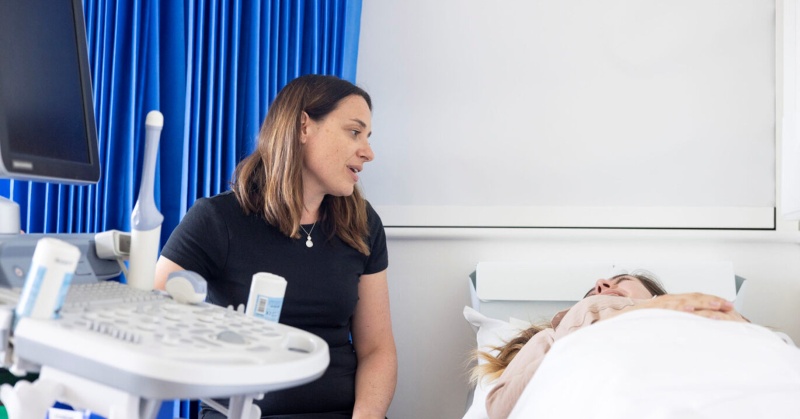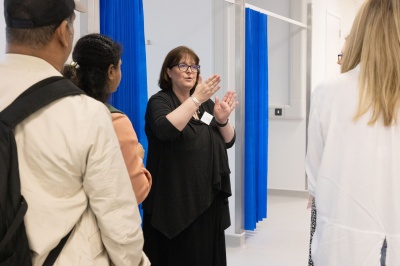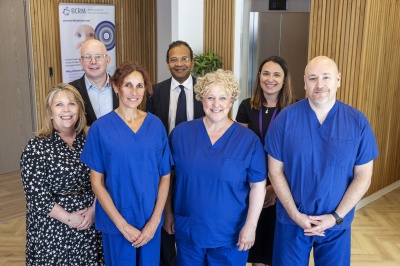Transvaginal Ultrasound Scan
Transvaginal Ultrasound Scanning (TVS) provides a detailed image of the uterus (womb) and ovaries and can help identify problems affecting your ability to conceive or carry a pregnancy.
It is also helpful for the following:
- Ovarian Reserve Assessment (estimate of egg numbers)
- Monitoring for IVF, ICSI, Clomifene or other fertility treatment such as egg donation
- Polyps, Fibroids and thickness of womb lining (endometrium)
- Ovarian cysts
- Amenorrhoea (lack of or irregular periods)
- Polycystic Ovarian Syndrome (PCOS)
- Premature Menopause
- Damaged Fallopian Tubes (hydrosalpinx)
Ultrasound scans can monitor if your eggs are developing properly and if they are being released from the ovaries. This is called ovarian follicular tracking.
We can also measure ovarian reserve using ultrasound scans of the ovary to count the number of follicles (egg sacs) within the ovary called AFC (antral follicle count). The Antral Follicle Count is highly predictive of the number of eggs that will be collected and the likelihood of success with IVF and other fertility treatments.

Ovarian Reserve Test (AMH)
As women get older, there is a reduction in the number and quality of eggs left in the ovaries. The number of remaining eggs varies from woman and ovarian reserve cannot be determined by age alone.
A blood test that measures levels of Anti-Mullerian Hormone – or AMH – can give an indication of the number of eggs remaining. The results can be affected by hormonal contraception, we would advise stopping contraception for 3-6months for more accurate results.
Research studies have shown this blood test is indicative of ovarian reserve and reproductive potential.
Tubal Tests
One in five women who face fertility problems have a problem with their fallopian tubes.
The tubes can be damaged by adhesions or scar tissue, or they can be blocked. These problems can prevent the successful meeting of sperm and egg and therefore cause infertility. Figures show that around eight in 10 cases of damaged tubes are caused by a chlamydia infection.
We undertake the following tests to assess your tubes:

Fertility Immune and NK Cells
Immune testing and treatment is not required nor appropriate for most patients, however, those with recurrent IVF failure or miscarriage where no other cause is found, it may help improve your chances of success.
Tests include Natural Killer (NK) cell testing in the endometrium or blood.
We also undertake several other tests which include:
- Advanced hormone tests
- Genetic and Chromosome tests
- Immune tests
- Infection screens
- Microbiology tests
- Histology
- MRI scans



